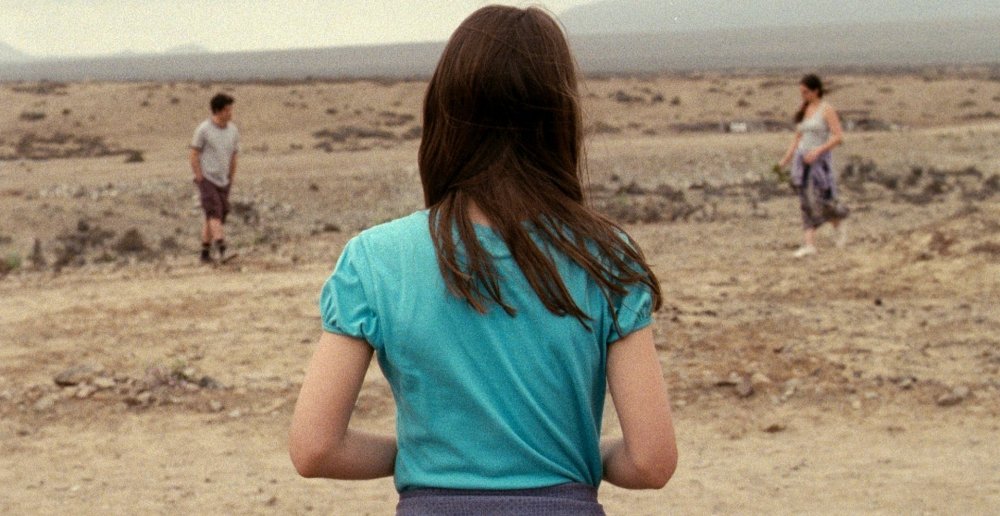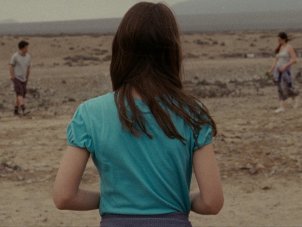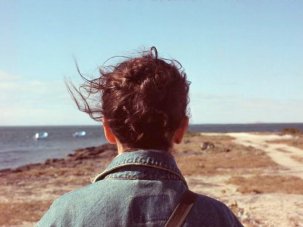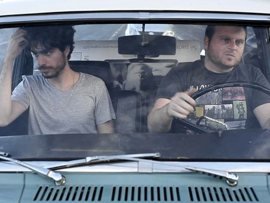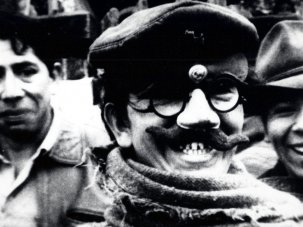The cosy torpor of a long family car journey, and the gap that yawns between a child’s dawning emotional awareness and the true complexities of adult entanglements: both are evoked with precision and aching empathy in Dominga Sotomayor’s feature debut.
Chile/The Netherlands/France/Spain/Argentina 2012
Certificate 12A
Director: Dominga Sotomayor
Cast
Papa Francisco Pérez-Bannen
Ana Paola Giannini
Lucía Santi Ahumada
Manuel Emiliano Freifeld
José Axel Dupré
Jorge Jorge Becker
[1.85:1]
Subtitles
Distributor Day for Night
Chilean theatrical title De jueves a domingo
Onscreen English subtitle Thursday through Sunday
Perhaps inevitably, since it primarily occupies a frustrated perspective – that of pubescent Lucía, who’s old enough to pick up on sexual and emotional currents but too young to demand or confidently guess at their explanations – it’s also a somewhat frustrating watch. Scenes are slow, exhaustively detailed and non-judgementally attentive to behaviour that’s frequently far from reasonable. And those alert to arthouse cliché may identify it in the drifty pace, the child’s-eye viewpoint and the theme of bourgeois concealment of secrets and lies. But Sotomayor’s confident direction of her extremely accomplished young cast – Santi Ahumada as Lucía and Emiliano Freifeld as little brother Manuel are particularly striking – and her skilled management both of screen time and of the flow of plot information draw added value from what might have seemed like an overextended short-film subject.
The passivity of children within a shifting family set-up is foregrounded from the film’s opening, in which a child’s sleepy body is transported into a car ahead of a holiday trip from the home in Santiago to a campsite in the wilder reaches of northern Chile. Off-camera, young mother Ana (Paola Giannini) asks, “Are you sure you want me to go?” “We already talked about it,” responds her husband Fernando (Francisco Pérez-Bannen). It’s the first of a succession of passive-aggressive exchanges that will leave the audience to draw its own conclusions regarding who exactly is leaving whom.
The insecure position in which her parents’ fracturing relationship – and her own hormonally unsettled stage of life – leaves Lucía is neatly evoked through several instances of sudden, disorienting solitude. When the family stops at a roadside café and Lucía loses sight of the rest of them, Bárbara Álvarez’s stalking camera captures her in a state of confusion that’s laced with just a little exhilaration: she’s just at the age of realising that one day she’ll have no choice but to exist independently of their care.
This not-too-distant future prospect is incarnated soon afterwards in the appealingly unkempt form of two female hitchhikers, 18 and 19 years old. Fernando picks them up to antagonise Ana, who has piqued his jealousy by excitedly arranging to meet her old friend Juan during the trip; but to Lucía, they are emblems of a freedom she can just barely envisage.
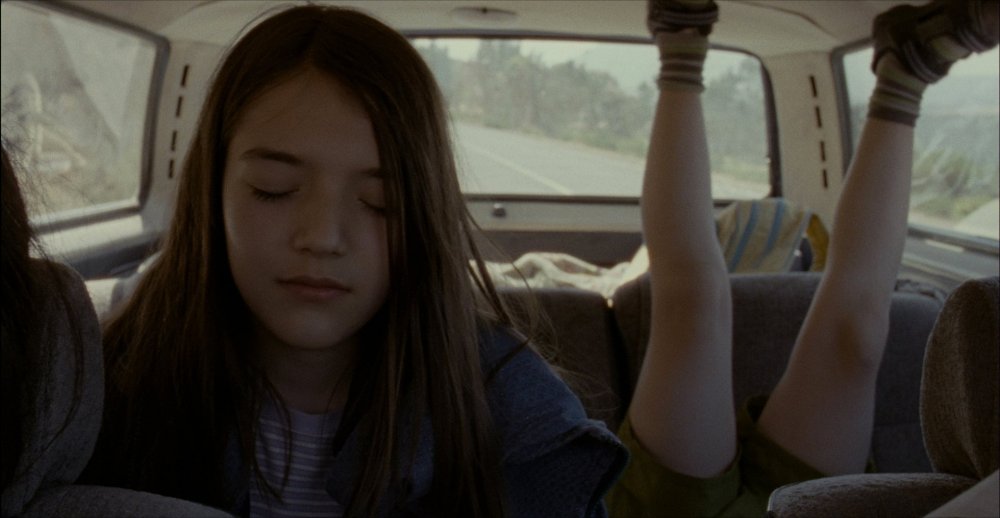
She’s not the only one with dreams of carefree independence. Both Fernando and Ana, neither of whom is far past 30, fixate on their youth, and don’t hide from their children their bitterness at its loss. Fernando refers repeatedly to rebellious episodes from his past, and attempts to recreate one when he pinches some fruit that’s dropped over the outside wall of an orchard. (He gets shot at for his trouble, but the glamour drains out of his adventure when Ana pronounces his booty “hard as rock”.) Ana, meanwhile, does her bit to introduce Lucía to female self-criticism when she pulls back the skin on her face and tells the young girl, “This is how I should be… like you… beautiful.”
Ana’s looks clearly aren’t a problem for the aforementioned Juan, whose arrival on the scene further activates Fernando’s inner teenage boy: wherever Juan might claim or assume superiority, Fernando is quick to compete. Whether Ana and Juan are physically involved is left ambiguous, but from their easy physical intimacy the watchful Lucía deduces the coming demise her parents’ marriage – which growing certainty confuses the issue of Ana slipping out of the children’s tent in dead of night in order to make love to Fernando.
Do the marauding pigs that invade the campsite the following morning (while she dreams of being forced into a horrible choice) represent Lucía’s impressions of greedy, undignified grown-up sexuality? Whether or not one regards the film’s take on the trappings of adulthood as quite that negative, certainly the only character who seems free of regrets, painful suspicions and fantasies of escape is Manuel, a boy so guileless that he begs Lucía for a favourite game in which he gets to play her “slave”, and sweetly contends, when his father is trying to coax Ana out of a nocturnal tantrum and back into the car, “She doesn’t want to.”
The fact that growing up entirely desimplifies the matter of wanting – that motivations here are constantly split and doubled – is reflected in remarkable camerawork by Álvarez. Regular cameraperson to Lucrecia Martel, she works here on lushly expressive Super 16, and habitually contains multiple points of action in one frame, offering the audience layers of activity to observe even as the dialogue gives little away.
In the April 2013 issue
Are we nearly there yet?
Set largely in the back of a car during a tense family roadtrip, Thursday till Sunday is a striking debut for Dominga Sotomayor, and further evidence of the growing diversity of Chilean cinema. Mar Diestro-Dópido talks to the director.
-
Sight & Sound: the April 2013 issue

In this issue: Danny Boyle, Kristin Scott Thomas, Carlos Reygadas, Point Blank and Beyond the Hills.




